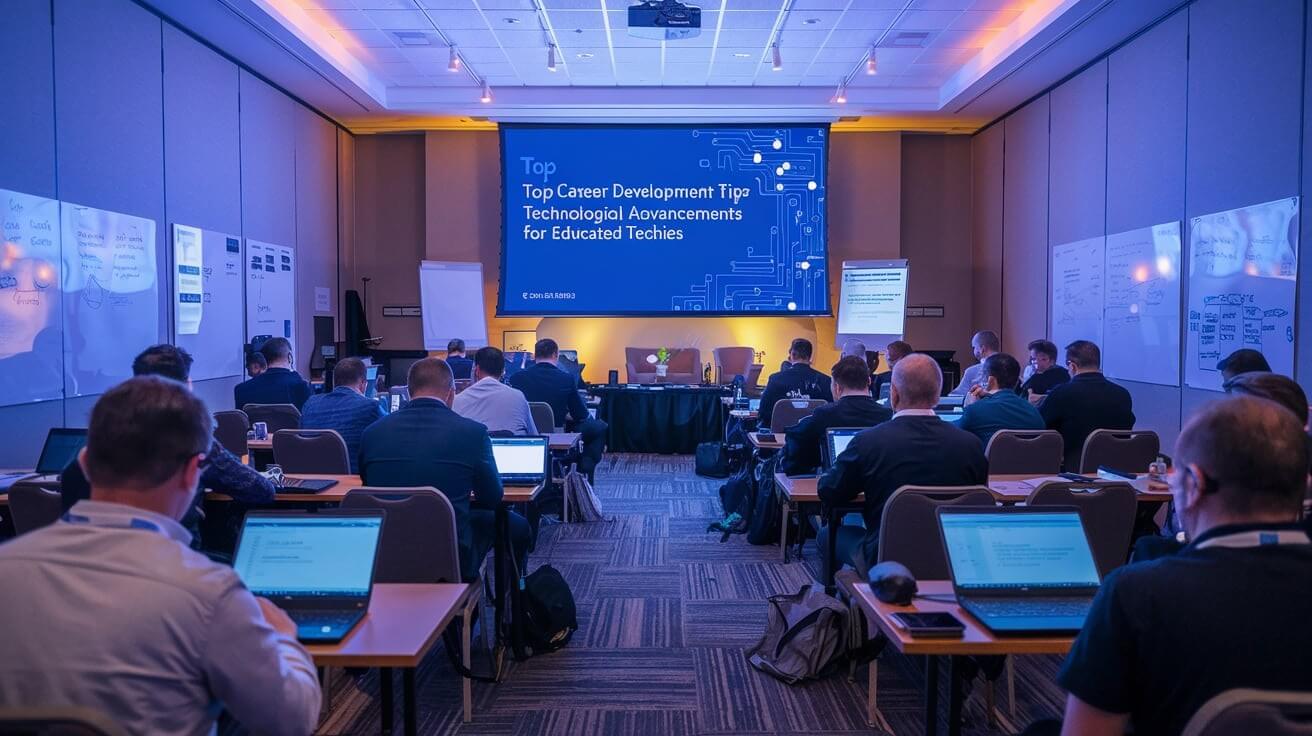
Career Growth Isn’t Optional—It’s Foundational
Career development isn’t a bonus. It’s a necessity. People don’t enter the workforce just to stay stuck in the same position for years. Everyone wants to grow, learn, and achieve something meaningful. When career development is part of the workplace culture, employees feel seen, heard, and respected.
When organizations invest in learning paths, skills training, and growth discussions, they’re not only improving workforce performance—they’re helping people find purpose in what they do every day. And that purpose shows up in productivity, loyalty, and innovation. Let’s explore why career development matters so much to the everyday employee.
What Career Development Means for Working Professionals
Career development is the ongoing process of improving skills, gaining new knowledge, setting meaningful goals, and moving forward professionally. It includes structured efforts like mentorship, skill workshops, career coaching, role transitions, and personal goal planning.
According to a survey conducted by LinkedIn in 2023, nearly 94% of employees said they would stay at a company longer if it invested in their career development. That’s not an opinion—it’s data-backed reality.

1. It Increases Job Satisfaction
When employees feel they’re growing, they’re more likely to stay motivated. They feel valued and know their work contributes to something larger. A 2020 Gallup report revealed that employees who receive regular feedback and development opportunities are 2.9 times more engaged.
Employees don’t need perks to feel appreciated—they need purpose and progress.
2. It Helps Reduce Turnover
Most people don’t leave companies—they leave stagnation. When there’s no clear path forward, employees seek opportunity elsewhere. Organizations that offer career development reduce voluntary exits significantly.
A study from IBM’s internal learning platform showed that their personalized development system led to a 21% reduction in employee turnover. Career growth leads to long-term retention.
3. It Builds Relevant Skills for the Future
The job you do today might look different tomorrow. That’s not fear-mongering—it’s how industries work. Technology, regulation, and global shifts affect job roles constantly. Employees who keep learning stay adaptable.
According to the McKinsey Global Institute, 375 million workers might need to change job categories by 2030 due to workplace automation. Upskilling now is the safest investment in your career.
4. It Boosts Confidence and Self-Esteem
People want to feel competent in what they do. When they acquire new skills and improve existing ones, they feel more confident tackling challenges. That confidence doesn’t just stay at work—it positively affects their whole life.
The American Psychological Association’s 2022 survey linked structured career development plans to higher self-esteem and a greater sense of belonging in the workplace.
5. It Opens Doors for Internal Promotion
Promotions don’t magically happen—they’re earned through growth. When employees engage in regular development, they’re more likely to be prepared for leadership roles. It also encourages them to seek responsibility rather than wait for recognition.
Forbes reported that internal candidates promoted based on development programs perform better and stay longer than external hires. Employers notice when you invest in yourself.
6. It Fosters a Habit of Lifelong Learning
Career development builds a learning mindset. That’s not just useful for your job—it’s useful for everything. People who keep learning are curious, motivated, and more open to new ideas.
Organizations that encourage this mindset—through reading groups, peer mentoring, or cross-functional training—see improved collaboration and adaptability. Learning doesn’t end with graduation. It’s a lifestyle.
7. It Aligns Individual and Organizational Goals
When employees’ personal goals match the company’s vision, amazing things happen. That alignment improves productivity, morale, and mutual respect.
Salesforce’s internal V2MOM system allows employees to clearly define their goals in harmony with company objectives. The result? Better performance and deeper engagement.
8. It Increases Earning Potential
With growth comes higher pay. People with more skills and responsibilities earn more. According to the World Economic Forum’s report, workers who pursue structured upskilling pathways can increase their income by 20% to 60%.
If you’re wondering whether learning a new software tool or getting certified is worth it—yes, it often pays off in both salary and job satisfaction.
9. It Builds Leadership and Decision-Making Skills
Leadership isn’t just about giving orders—it’s about solving problems, thinking critically, and making good decisions under pressure. Career development helps people step into those abilities, whether or not they have a formal title.
Companies that invest in leadership pipelines—like rotational programs or mentoring—see better decision-making across the board. A study by DDI found that these companies were 1.5 times more financially successful.
10. It Lowers Burnout and Work-Related Stress
Uncertainty is one of the biggest stress triggers at work. Employees who don’t know what their future looks like feel anxious, disconnected, and unmotivated. Career development provides direction.
The American Psychological Association’s 2023 study found that 43% of workers felt career progression uncertainty was a major cause of stress. That stress drops significantly when employees have clear plans and support systems.
What Employers Can Do to Support Career Growth
Career development is not a one-sided effort. Employers need to provide the structure—employees bring the initiative. Here are ways companies can support meaningful growth:
-
Offer paid learning and development hours
-
Create mentoring and coaching networks
-
Conduct regular one-on-one career planning sessions
-
Celebrate skill-building efforts publicly
AT&T’s $1 billion “Future Ready” program stands as a real-world example. Their company-wide reskilling effort helped thousands of employees stay relevant in changing roles.
What Experts Say About Career Development
Dr. Beverly Kaye, an expert in retention strategies, emphasizes that frequent career conversations can outperform many traditional benefits in keeping talent.
Carol Dweck’s research on Growth Mindset supports the idea that employees who believe they can develop skills are more resilient and engaged.
Peter Cappelli from Wharton calls career development the modern equivalent of compensation—it’s what many employees value more than raises or bonuses.
Final Thoughts
Career growth is a journey, but it’s also a mutual agreement. Employees must take ownership of their goals and learning, while organizations must provide the tools, time, and trust for that growth to happen.
It’s not about rushing to the top. It’s about staying engaged, growing at your pace, and feeling proud of what you do and who you’re becoming. A job can be a paycheck—or it can be part of your purpose. Career development makes the difference.
FAQs
1. How often should I review my career development plan?
Twice a year is a good rule of thumb. Use these check-ins to assess progress, update goals, and find new learning opportunities.
2. Who is responsible for my career development—me or my employer?
Both. You drive the process, but employers should offer support systems that make growth possible.
3. What are some easy ways to start developing my career?
Start by setting one clear goal, reading industry articles weekly, taking a short online course, or finding a mentor.
4. Can career development happen without formal training?
Absolutely. On-the-job learning, peer feedback, and project-based learning are valuable growth paths.
5. Does career development always mean changing jobs?
Not necessarily. It often means growing in your current role or expanding your responsibilities without switching companies.
Career Development

